Americas
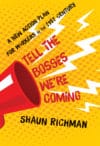
Lengthening hours, lessening pay, no parental leave, scant job security… Never have so many workers needed so much support. Yet the very labor unions that could garner us protections and help us speak up for ourselves are growing weaker every day. In an age of rampant inequality, of increasing social protest and strikes— and when a majority of workers say they want to be union members—why does union density continue to decline? Shaun Richman offers some answers in his book, Tell the Bosses We’re Coming. | more…
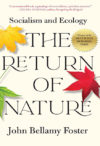
Twenty years ago, John Bellamy Foster’s Marx’s Ecology: Materialism and Nature introduced a new understanding of Karl Marx’s revolutionary ecological materialism. More than simply a study of Marx, it commenced an intellectual and social history, encompassing thinkers from Epicurus to Darwin, who developed materialist and ecological ideas. Now, with The Return of Nature: Socialism and Ecology, Foster continues this narrative. In so doing, he uncovers a long history of efforts to unite issues of social justice and environmental sustainability that will help us comprehend and counter today’s unprecedented planetary emergencies. | more…
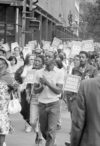
As the long history, right to the present day, of police and vigilante violence against black people has shown with great clarity, the racial chasm between black and white people in the United States lives on. A few black men and women have climbed into the 1 percent, and a sizable African-American middle class now exists. But by every measure of social well-being, black Americans fare much worse than their white counterparts. Just as for the economic, political, and social distance between capitalists and workers, so too is there a differential between black and white people, for these same interconnected components of daily life continue because of the way our system is structured. | more…

My pop was always working on our house, a shack that was all my parents could afford in the great hunger for homeownership that came after the Second World War. But nothing ever quite got finished, either for lack of funds or motivation. But if he wasn’t quite a craftsman himself, he admired craft. He was moved by the effort and intricacy of how things were made. ‘Honey, look at this old wooden chest with these lovely silver handles. Think of all the work that was done to this thing by someone’s hands.’ | more…

In 1950, the mainly Mexican and Mexican-American members of the International Union of Mine, Mill and Smelter Workers Local 890 went on strike against Empire Zinc in southern New Mexico. One of the only fair-haired and pale-skinned union men in meetings and jail was Mine Mill organizer Clinton Jencks. Raymond Caballero’s study, McCarthyism vs. Clinton Jencks, exhaustively details how the federal government brought the entire weight of its repressive apparatus down on the heads of Jencks, his family, and his union siblings. | more…

Health Care Under the Knife, a collection of essays under the editorship of Howard Waitzkin, presents a vigorous critique of health within the context of capitalism, examining the extent to which the economy and its relations of production determine how health is socially distributed, the conditions of medical practice, and the structural organization of health systems. Rather than considering health as primarily a biomedical phenomenon and health systems as autonomous institutions, the volume recognizes the intricate fundamental relationship between health and the wider political, economic, and sociological context. | more…
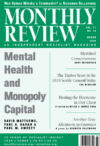
According to the U.S. Bureau of Labor Statistics, the U.S. economy is experiencing an unemployment rate that is at a fifty-year low. Yet, wage growth continues to be weak, with continuing wage stagnation even at the peak of the business cycle. A major and largely undertheorized reason for the sluggish wages in a period of seeming full employment is to be found in the fact that the new jobs being created by the economy do not measure up to those of the past in terms of weekly wages and hours, or in the degree to which they support households or even individuals. | more…
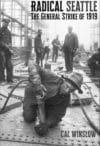
Seattle in 1919 was an island in a still immeasurable sea of timber. The Pacific coastal forests were estimated to contain nearly two-thirds of the timber in the country, and the Washington State forests accounted for the largest part of these. The physical hardships associated with the lumber industry, including isolation deep within the rain forests, made working conditions an even more miserable burden than low wages. The work was seasonal and layoffs were common; the completion of one job might mean termination and the search for work elsewhere. When the winter rains brought an end to work in the woods, the state’s loggers fled to the city, not welcome elsewhere. In some years, there might be thousands on Seattle’s streets. | more…
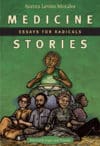
Healing through the stories we rescue and the history we make is what Aurora Levins Morales’s Medicine Stories: Essays for Radicals is about. The author, a historian curandera, compiled a series of twenty-eight essays in this second edition, published twenty years after the first. Levins Morales theorizes movements for social justice and how to overcome challenges faced by activists and all those fighting and resisting oppression. She does this through accounts of her studies, personal experiences, and social conditions, providing a view of the world that allows collective healing and encourages it in others through a comprehensive understanding of history. | more…
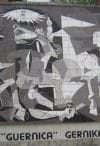
A new poem by Kenneth Salzmann, author of The Last Jazz and Other Poems. | more…
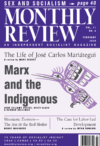
According to the U.S. Bureau of Labor Statistics, the U.S. economy is experiencing an unemployment rate that is at a fifty-year low. Yet, wage growth continues to be weak, with continuing wage stagnation even at the peak of the business cycle. A major and largely undertheorized reason for the sluggish wages in a period of seeming full employment is to be found in the fact that the new jobs being created by the economy do not measure up to those of the past in terms of weekly wages and hours, or in the degree to which they support households or even individuals. | more…
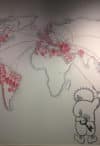
The Ass and the Red Heifer
The relation between Zionism and Judaism (the Jewish religion) is paradoxical and complex. In its early days, Zionism was apparently a thoroughly secular political movement. In reality, while its ego was secular, its id has always been religious. And in recent times, the latter has emerged from its hidden recess and is parading in full view. | more…











